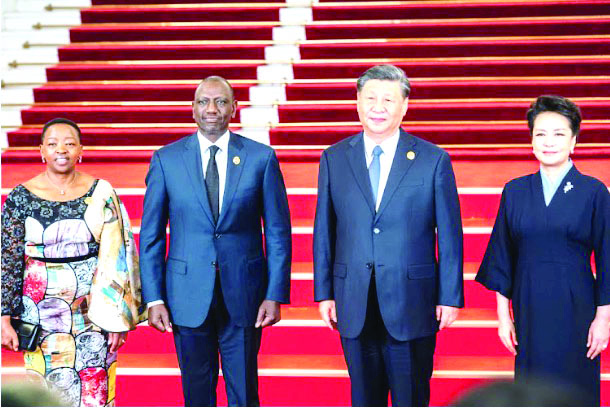China’s reform strategies for global governance
By Stephen.Ndegwa, February 8, 2024With reigning confusion and expanding vacuum in global leadership, the world is searching for leadership from mounting crises.
Both the Covid pandemic and gradual weakening of the United States have left countries searching for a nation that will anchor dearly held humanitarian ideals.
China is steadily stepping up to the challenge. China advocates for reforms and improvement of the global governance system to build a community with a shared future for mankind.
Chinese President Xi Jinping has given wide ranging solutions on what the world needs today, calling on all parties to follow the path of multi-lateralism, maintain the international system with the United Nations at its core, jointly build a community with both a shared future for mankind and a new type of international relations.
The threats and challenges facing the world today are mounting, and there is an urgent need to improve global governance and strengthen coordination and cooperation.
At the same time, as developing countries are rising in groups, the global governance system needs to reflect the reality of international politics and reflect the multi-polar development process.
China has spelt out five proposals for a new brave world. First, practice the principle of extensive consultation, joint contribution and shared benefits.
Countries, big or small, are equal members of the international community. Major risks and challenges know no boundaries, and the future and destiny of countries are closely related.
Global affairs should be discussed by everyone, the governance system should be built by everyone, and the results of governance should be shared by everyone, so that countries can become participants, contributors, and beneficiaries of world development.
Secondly, the world must jointly respond to non-traditional security threats. In the 21st century, from the “September 11” incident to the international economic and financial crisis, to this epidemic, mankind has faced global risk challenges.
We must coordinate the response to traditional security and non-traditional security threats, and put public health and climate change on the international agenda. Non-traditional security threats require overall planning and comprehensive policy implementation.
Thirdly, to improve global governance, major powers must play an exemplary role by taking the lead in implementing the UN Charter, in providing global public goods, and in contributing to world peace and development.
Major powers must take the future and destiny of mankind as a priority and abandon the Cold War mentality and ideological prejudices.
Fourth is maintaining international law and order. To build a global governance pattern, we must establish a sense of legislation. It is necessary to abide by the basic norms of international relations such as sovereign equality, non-interference in internal affairs of other nations, and peaceful settlement of disputes.
We must oppose unilateral sanctions and long-arm jurisdiction, and maintain the authority and seriousness of international law.
The international community should jointly promote the formulation of laws in emerging areas such as the deep sea, polar regions, networks, and outer space.
Fifth, we must deal comprehensively with global risks, compounded crisis and challenges we face. As the most universal, representative and authoritative international organisation, the UN is more qualified and superior to play a leading role than other countries and international organisations.
The UN also needs to keep pace with the times, increase representation and voice of developing countries, improve operational efficiency and emergency response capabilities, and modernise its governance system and capabilities.
As the core of the collective security mechanism, the UN Security Council is an important part of the global governance system and bears the primary responsibility for maintaining international peace and security. In the emerging geopolitics, the Security Council must fulfil the responsibilities entrusted by the UN Charter, guarantee world peace, provide stability to the international order, provide security to people of all countries, and hope for global governance.
— The writer is a PhD candidate in International Relations
